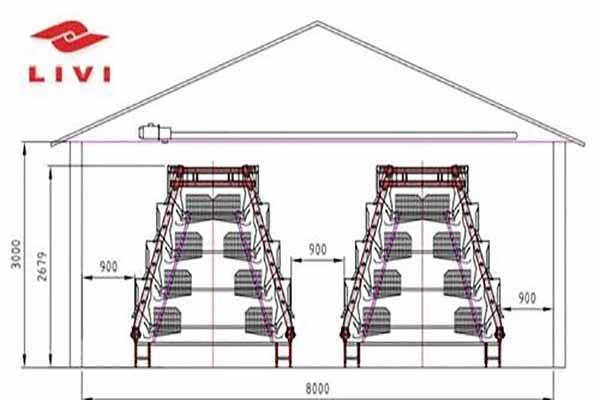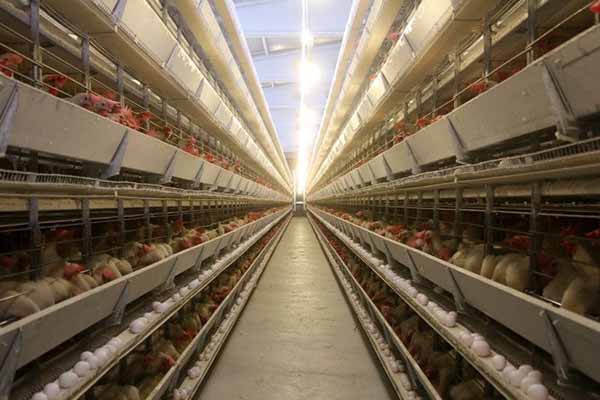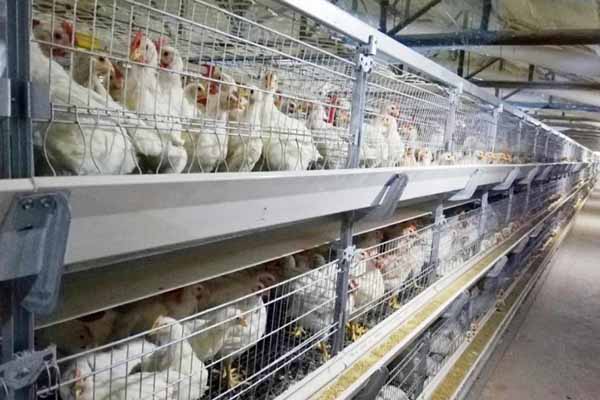Kenya Chicken Farming Equipment: Regular Inspection Items and Maintenance Tips
Time : 2025-04-28
Chicken farming has been a lucrative business venture in Kenya for years. However, maintaining the efficiency and longevity of your farming equipment is crucial to keep your business running smoothly. In this article, we will discuss the regular inspection items for your chicken farming equipment and some valuable maintenance tips to help you stay on top of your game.
Introduction to Chicken Farming Equipment
Before diving into the inspection items, let’s take a quick look at the essential chicken farming equipment you need:
- Feeders and Waterers: Ensuring your chickens have access to fresh, clean water and nutritious feed is vital for their health and productivity.
- Housing: Proper housing provides shelter, security, and a comfortable environment for your chickens.
- Brooders: These are used to keep newborn chicks warm and cozy until they can regulate their body temperature.
- Heaters: Keeping your chickens warm, especially during the cold season, is essential for their health and egg production.
- Airflow and Ventilation: Good airflow helps maintain a healthy environment for your chickens and reduces the risk of respiratory diseases.
Regular Inspection Items for Chicken Farming Equipment
1. Feeders and Waterers
Regularly inspect your feeders and waterers for any signs of wear and tear, such as cracks or leaks. Make sure they are easy to clean and sanitize to prevent the growth of bacteria and mold.

- Check for rust, corrosion, or cracks in the material.
- Ensure the hinges and mechanisms are working smoothly.
- Inspect the water supply lines for leaks.
- Clean and sanitize the feeders and waterers weekly.
2. Housing
Your chickens’ housing should be inspected regularly for any signs of damage, such as holes, broken panels, or faulty locks. A secure and well-maintained housing will protect your birds from predators and extreme weather conditions.

- Inspect the walls, roof, and floor for any signs of damage or wear.
- Check the doors and windows for proper functioning and security.
- Ensure that the housing is adequately insulated to maintain a comfortable temperature for your chickens.
- Regularly clean and sanitize the housing to prevent the spread of diseases.
3. Brooders
Brooders are critical for the survival and growth of newborn chicks. Regularly inspect them to ensure they are working correctly and providing the necessary heat and warmth.

- Check the heating elements for any signs of damage or wear.
- Ensure the brooder is securely placed in the housing to prevent any accidents.
- Inspect the temperature control settings and make sure they are accurate.
- Clean and sanitize the brooder regularly.
4. Heaters
Heaters are essential for maintaining a comfortable temperature in your chicken house, especially during the cold season. Regular inspections will help prevent unexpected breakdowns and ensure your chickens stay warm and healthy.
- Inspect the heating elements for any signs of damage or wear.
- Ensure the thermostats are working correctly and maintaining the desired temperature.
- Check the power supply and wiring for any signs of wear or damage.
- Regularly clean and sanitize the heaters to prevent the build-up of dust and debris.
5. Airflow and Ventilation
Good airflow is crucial for maintaining a healthy environment in your chicken house. Regularly inspect your ventilation system to ensure it is working correctly and providing the necessary air exchange.
- Check the fans, vents, and exhaust systems for any signs of damage or blockage.
- Ensure the airflow is even and consistent throughout the house.
- Regularly clean and sanitize the ventilation system to prevent the build-up of dust and debris.
Additional Maintenance Tips
- Preventative Maintenance: Regularly perform routine maintenance tasks, such as tightening loose bolts, lubricating moving parts, and cleaning the equipment.
- Keep Records: Document your maintenance activities, including the date, tasks performed, and any issues encountered. This will help you track the condition of your equipment over time.
- Professional Help: If you are unsure about inspecting or maintaining a particular piece of equipment, don’t hesitate to seek professional assistance.
- Training: Invest in training for yourself and your staff to ensure everyone is knowledgeable about proper equipment maintenance and safety procedures.
By following these regular inspection items and maintenance tips, you can keep your chicken farming equipment in excellent condition, ensuring the health and productivity of your flock. Remember, a well-maintained farm is a successful farm!











